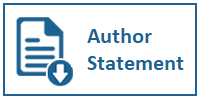SUSTAINABLE PREMIUM OF SUSTAINABLE BONDS: EMPIRICAL STUDY OF STATE OWNED ENTERPRISES IN INDONESIA
DOI:
https://doi.org/10.31937/akuntansi.v17i1.4056Abstrak
Abstract— This study investigates the sustainable premium of bonds issued by State-Owned Enterprises (SOEs) in Indonesia and examines the determinants influencing the yields of these sustainable bonds. Sustainable premium is the price difference of sustainable bonds and conventional bonds that are proxied by yield to maturity (YTM). A sustainable premium benefits issuers by reducing funding costs and building social capital. This study uses data panel regression for data analysis that taken from bonds that are listed on IDX in 2020-2023. The data consist of 1.018 bonds then sorted based on the type of bond (sustainable bonds and non-sustainable bonds) and the issuing company. It is found that the yield to maturity of sustainable bonds tends to be higher than conventional bonds. This means that based on the data there was no sustainable premium on SOE’s sustainable bonds in Indonesia. Meanwhile, the ESG risk score, status of SOEs, Return on Assets and Debt to Asset Ratio do not have a significant effect on the yield to maturity of SOEs’ sustainable bonds. Rating, modified duration, GDP and inflation have significant effects to yield to maturity of SOEs’ sustainable bonds.
Keywords: Sustainable Premium; Sustainable Bonds; State Owned Enterprises; Yield to Maturity; ESG
Unduhan
Unduhan
Diterbitkan
Cara Mengutip
Terbitan
Bagian
Lisensi
Hak Cipta (c) 2025 Darmia Dimu, Sung Suk Kim

Artikel ini berlisensiCreative Commons Attribution-ShareAlike 4.0 International License.
Authors retain copyright and grant the journal right of first publication with the work simultaneously licensed under a Creative Commons Attribution-ShareAlike International License (CC-BY-SA 4.0) that allows others to share the work with an acknowledgement of the work's authorship and initial publication in this journal.
Authors are able to enter into separate, additional contractual arrangements for the non-exclusive distribution of the journal's published version of the work (e.g., post it to an institutional repository or publish it in a book), with an acknowledgement of its initial publication in this journal.
















